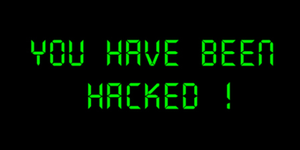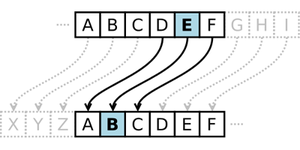Cybersecurity Science Projects (8 results)
Personal messages, photos, banking information, credit card numbers, names, addresses, health records—a lot of
your family's private information is stored on computers and zipping through the Internet!
Cybersecurity is the act of keeping information, ranging from embarrassing baby photos to national secrets, private and viewed by only the right people.

|
Select a resource
Sort by
|
We use passwords every day for our email and other computer accounts. How secure is the password that you use? How hard would it be for someone to guess your password? How hard is it to write a computer program to guess a password? You can see for yourself by writing a simple password guesser in the computer language Python. We will get you started with some ideas, a little sample code, and a few passwords for your computer program to try and guess.
Read more
When you hear the word "encryption," you might think about modern computers and things like email and online bank accounts. But did you know that encryption has been around for thousands of years? In this project you will learn about the Caesar cipher, a simple type of encryption that replaces each letter of the alphabet with another letter, and demonstrate how a modern computer can crack this ancient code in just a few seconds.
Read more
New
Have you ever noticed that on a hot day, it's more comfortable to wear a light-colored shirt than a dark one? Or that it's cooler in a park than walking down a street? This happens because different surfaces absorb and reflect heat in different ways. Urban heat islands are parts of cities where man-made surfaces like pavement and buildings replace natural surfaces like grass and trees. In this project, you will use temperature and satellite data to see if certain areas in a city have higher…
Read more
You might think that one sure-fire way to keep your computer safe from hackers is to disconnect it from the internet entirely. But did you know that even without internet, a computer can transmit data using light, sound, vibrations, or even heat? In this project, you will investigate how a spy or hacker can steal data from an "air-gapped" computer that has no internet connection. You can even use a smartphone equipped with a sensor app to demonstrate how the data can be picked up by a nearby…
Read more
If you've ever watched an adult pay for something by simply touching their credit card to a machine at a store, or you've done the same with a bus pass, you've seen an RFID tag in action. An RFID (Radio-Frequency IDentification) tag allows a card to be read by a computer from a short distance away. This is very convenient, but it also allows criminals to steal information about you. For instance, on the subway or the bus, someone standing next to you can use an RFID reader to access the data on…
Read more
Many websites ask you to answer "security questions," like "What is your mother's maiden name?," to recover your account if you ever forget your password or login ID. However, sometimes the answers to those questions are easy to find online. Does this pose a risk to the security of important accounts like email and online banking? Are people even aware that this information about them is available online? In this project, you will investigate how secure people think security questions are, and…
Read more
New
Does your dog get bored when you are not home? Do you ever toss them a few treats right before you head out the door? What if you could keep them busy by automatically dispensing treats throughout the day? What about training them to sit in a certain place or even press a button by automatically rewarding them with treats? In this project you will build your own automatic dog (or cat, or other pet) treat dispenser that you can customize to react to different sensors.
Read more
How many websites do you have accounts with that store personal information like your name, email, phone number, or mailing address? If the people running these websites are not careful, hackers could gain unauthorized access to, and even change or delete, your information. They can do this using something called SQL injection, which involves entering malicious code into text fields on a website. In this project you will learn how SQL injection works and figure out how to prevent it.
Read more
When you delete a file, by accident or on purpose, is the information really gone? Can you get it back? If you accidentally deleted your five-page report for school, you are hoping it is not gone. On the other hand, if you do not want someone to get their hands on the goofy and unflattering pictures you and your best friend took while staying up late the other night, you probably hope it is gone for good! It might be nice to know for sure either way. Try this project to find out.
Read more
Do you ever use a password to log in to a computer, email account, or website? Do you use the same password for each one? Even if your password is very long or hard to guess, using the same password for many accounts can still be risky. If someone manages to find out your password (for example, via a phishing attack, or if you write your passwords down and someone finds the piece of paper), they could easily access many of your accounts. However, memorizing lots of different passwords can be…
Read more
|
Explore Our Science Videos
Aluminum Foil Boat Design - STEM Lesson Plan
Write and Read Braille – STEM activity
Build a Wind-Powered Car















